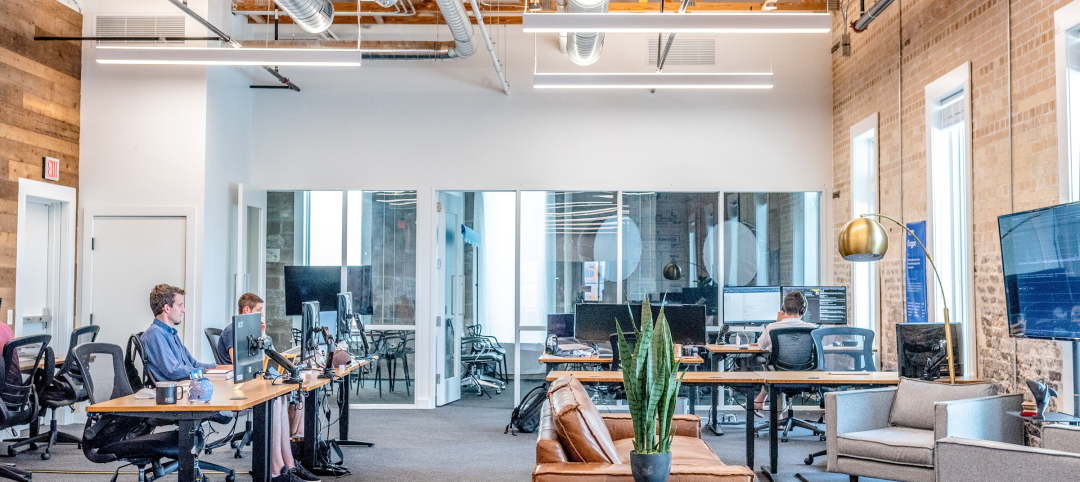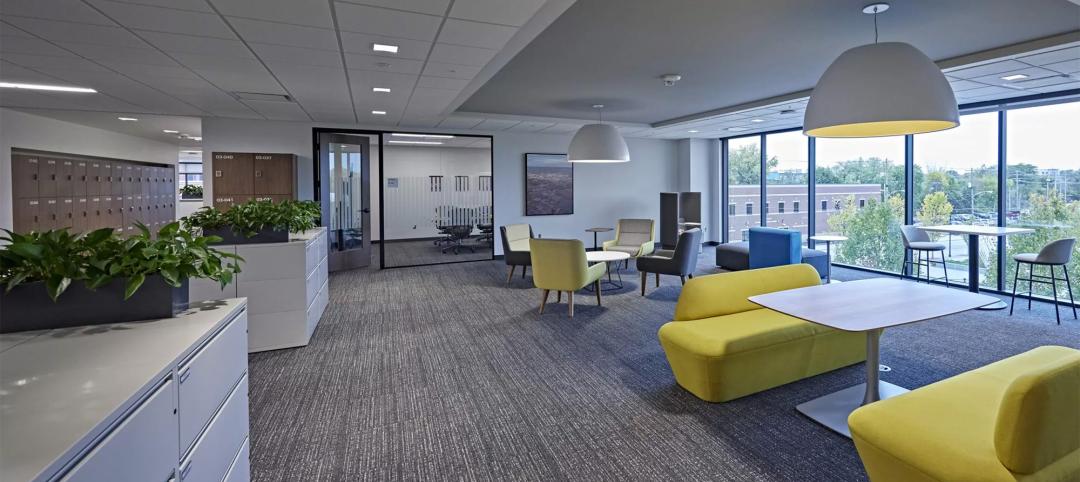Last year, construction spending in New York City was up 26%, to $36 billion. And construction employment in the Big Apple, at 122,975, was the highest it’s been since 2008, according to the New York Building Congress. Of that dollar total, spending on nonresidential construction increased by 20% to $9.8 billion, the first time since 2010 that nonresidential spending grew year-to-year.
Those heady numbers, though, are no guarantees of future spending. In fact, New York is among the major metros—including Washington D.C., Phoenix, and San Diego—where office building development and construction are tailing off from historic levels or cooling down, according to CoStar, the real estate market research firm, in its report on the national office market trends for the first quarter of 2015.
The good news is that an estimated 108 million sf of office space were under construction in the U.S. at the end of the first quarter, a 17% gain over the same period a year ago. That construction level approached the historical average of 122 million sf, which the country last achieved in late 2008.
The cautionary news is that 15 million sf of office space were delivered in the first quarter of 2015, the first time in the latest economic cycle that deliveries exceeded net absorptions, which during that quarter were 12 million sf.
CoStar estimates that construction levels are above historic norms in about one-third of the largest U.S. metros. It singles out Silicon Valley in Northern California, which is seeing a rash of corporate campuses springing up. Other above-average office construction markets include Dallas-Fort Worth, Raleigh, Boston, and Chicago.
The researcher cites a shift in strategy among office building developers such as Boston Properties, which is using capital from the sale of older for new developments with potentially higher yields. Boston Properties has 11 office projects totaling 3.3 million sf in its current development pipeline.
CoStar notes that while rising rents are driving the office construction booms in certain markets like San Francisco, two thirds of the country’s metros are still not seeing the kind of rent appreciation that would justify large-scale new office construction.
That being said, among the notable deliveries in the first quarter was the 1.5-million-sf second phase of ExxonMobil’s corporate campus in Houston, which is also where a 1.7-million-sf campus that is fully leased to FMC Technologies got started during the quarter.
Lincoln Property started the first new office building in San Francisco’s Financial District in a decade, a 433,000-sf project that, despite being built on spec, shouldn’t have too much trouble finding tenants in a market whose office vacancy rate for four- and five-star buildings is 7.8%.
Related Stories
High-rise Construction | Jul 29, 2024
Safdie Architects’ Shanghai office tower features glass-enclosed corner garden that ascends the 35-story structure
Safdie Architects has announced the completion of LuOne Mixed-Use Complex—a business, retail, and entertainment development in the Luwan district of Shanghai, China. The mixed-use complex consists of an eight-level retail galleria, which opened in 2018, and a 35-story office tower, which recently reached completion.
Smart Buildings | Jul 25, 2024
A Swiss startup devises an intelligent photovoltaic façade that tracks and moves with the sun
Zurich Soft Robotics says Solskin can reduce building energy consumption by up to 80% while producing up to 40% more electricity than comparable façade systems.
Great Solutions | Jul 23, 2024
41 Great Solutions for architects, engineers, and contractors
AI ChatBots, ambient computing, floating MRIs, low-carbon cement, sunshine on demand, next-generation top-down construction. These and 35 other innovations make up our 2024 Great Solutions Report, which highlights fresh ideas and innovations from leading architecture, engineering, and construction firms.
Office Buildings | Jul 22, 2024
U.S. commercial foreclosures increased 48% in June from last year
The commercial building sector continues to be under financial pressure as foreclosures nationwide increased 48% in June compared to June 2023, according to ATTOM, a real estate data analysis firm.
Sponsored | Office Buildings | Jul 17, 2024
Unlocking Sustainability: Smart Access in the Coworking Space
Smart building technologies, including modern access control systems, are transforming coworking spaces by advancing sustainability initiatives and offering new ways to create and operate efficient working spaces. Learn more about the benefits of eco-friendly practices, from reducing carbon emissions to cutting operating costs, and discover how choosing the right partners can amplify your green efforts.
Adaptive Reuse | Jul 12, 2024
Detroit’s Michigan Central Station, centerpiece of innovation hub, opens
The recently opened Michigan Central Station in Detroit is the centerpiece of a 30-acre technology and cultural hub that will include development of urban transportation solutions. The six-year adaptive reuse project of the 640,000 sf historic station, created by the same architect as New York’s Grand Central Station, is the latest sign of a reinvigorating Detroit.
Government Buildings | Jul 8, 2024
GSA adopts new accessibility guidelines for federal properties
The U.S. General Services Administration (GSA) adopted a new rule with new accessibility guidelines for federal buildings. The rule establishes that pedestrian facilities in the public right-of-way are readily accessible to and usable by people with disabilities.
Office Buildings | Jul 8, 2024
Office vacancy peak of 22% to 28% forecasted for 2026
The work from home trend will continue to put pressure on the office real estate market, with peak vacancy of between 22% and 28% in 2026, according to a forecast by Moody’s.
Office Buildings | Jul 1, 2024
Mastering office layouts: 5 primary models for maximum efficiency and productivity
When laying out an office, there are many factors to consider. It’s important to maximize the space, but it’s equally important to make sure the design allows employees to work efficiently.
Smart Buildings | Jul 1, 2024
GSA to invest $80 million on smart building technologies at federal properties
The U.S. General Services Administration (GSA) will invest $80 million from the Inflation Reduction Act (IRA) into smart building technologies within 560 federal buildings. GSA intends to enhance operations through granular controls, expand available reporting with more advanced metering sources, and optimize the operator experience.

















